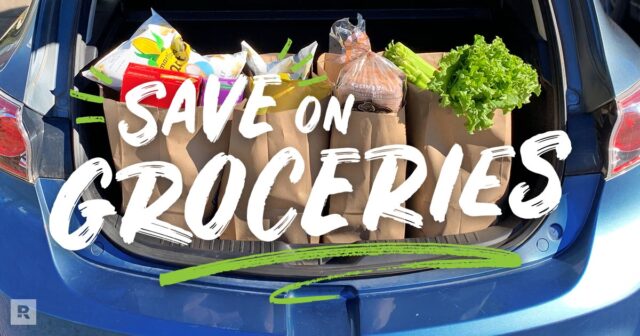1. Plan Meals and Create a Shopping List
The first strategy that can be implemented to save money on groceries in 2024 is meal planning and list-making. It has been observed that shopping without a plan often leads to impulse purchases and overspending. Therefore, a weekly meal plan should be created, taking into consideration what is already available in the pantry. Once the meals are planned, a shopping list should be prepared based on the required ingredients. It is important to stick to this list while shopping to avoid unnecessary purchases.
Moreover, apps and digital tools can be utilized to streamline this process. They offer features such as recipe suggestions based on the available ingredients, which can further reduce grocery expenses. By planning meals and creating a list, waste is minimized, and only what is necessary is purchased, leading to significant savings over time.
2. Buy in Bulk and Take Advantage of Sales
Another effective strategy involves buying in bulk and capitalizing on sales. Non-perishable items, such as canned goods, grains, and household essentials, can be purchased in larger quantities to benefit from bulk pricing. Buying in bulk often results in a lower cost per unit, thus reducing overall expenses.
Sales and discounts should also be monitored regularly. Many stores offer weekly sales, and these can be used to stock up on frequently used items. Additionally, seasonal sales and promotions should not be overlooked. For instance, holiday sales or clearance events provide an opportunity to purchase items at significantly reduced prices. However, it is essential to ensure that items bought in bulk or on sale will be used before they expire, to avoid waste.
3. Utilize Coupons and Loyalty Programs
Coupons and loyalty programs continue to be a valuable resource for saving money on groceries. Manufacturers and retailers often provide digital or paper coupons that can be applied to specific products or total purchases. These discounts can add up over time and contribute to significant savings.
Loyalty programs, offered by many grocery stores, provide additional discounts, points, or cash-back incentives based on the amount spent. These programs often include exclusive offers and discounts that are not available to non-members. Therefore, it is recommended to sign up for loyalty programs at frequently visited stores. The rewards earned through these programs can be used to reduce future grocery bills.
4. Choose Generic or Store Brands
Choosing generic or store brands over name brands is a simple yet effective way to reduce grocery costs. In many cases, store brands offer the same quality as national brands but at a lower price. By opting for generic options, a substantial amount of money can be saved without sacrificing quality.
Price comparisons between store and national brands should be conducted regularly. Many stores now place their generic brands next to name brands, making it easier to compare prices and ingredients. It has been found that the price difference between these options can range from 20% to 50%, resulting in considerable savings when generic brands are chosen.
5. Reduce Food Waste
Reducing food waste is another key strategy for saving money on groceries. It has been estimated that a significant portion of purchased food is wasted due to spoilage, overbuying, or improper storage. By taking steps to reduce waste, grocery expenses can be lowered.
Proper storage techniques should be used to extend the shelf life of perishable items. For example, fruits and vegetables can be stored in the refrigerator to keep them fresh longer, while dry goods should be kept in airtight containers. Additionally, leftovers should be consumed or repurposed into new meals rather than discarded. Meal planning, as mentioned earlier, also plays a crucial role in reducing waste, as it ensures that all purchased ingredients are used efficiently.
Furthermore, composting can be considered as a way to manage unavoidable food waste. While it does not directly save money, composting reduces the amount of waste sent to landfills and can be used to enrich soil for gardening, potentially reducing future grocery costs by growing some of your own produce.
Conclusion
The strategies outlined above have been proven to be effective in saving money on groceries in 2024. By planning meals, buying in bulk, utilizing coupons and loyalty programs, choosing generic brands, and reducing food waste, grocery expenses can be significantly reduced. These strategies require consistent effort and mindfulness, but the financial benefits make them well worth the investment. Implementing these strategies can help manage the rising costs of groceries and contribute to a more financially sustainable lifestyle.










